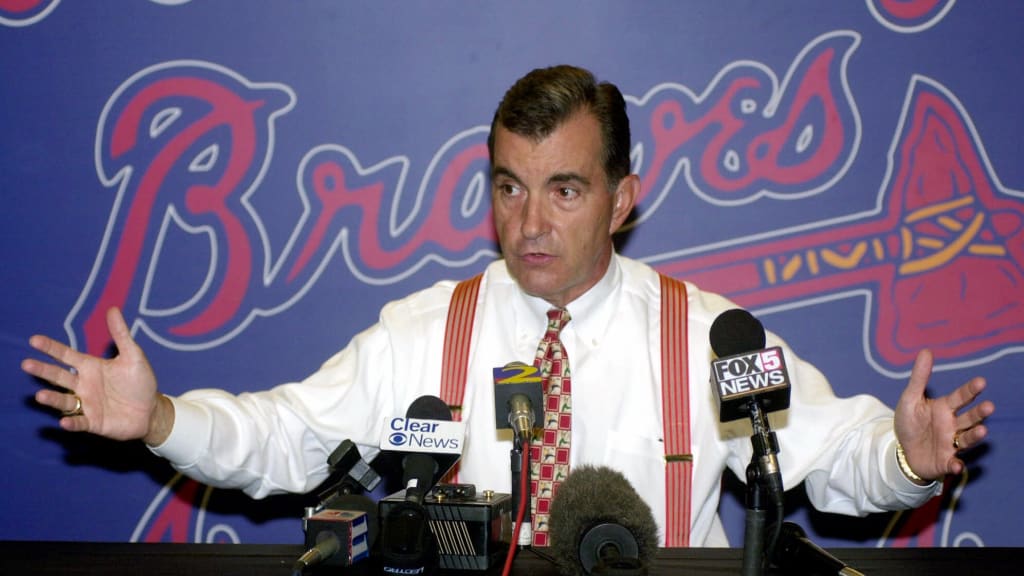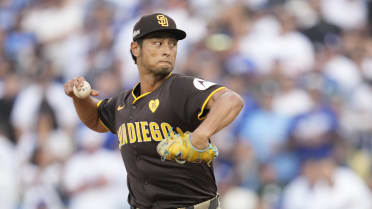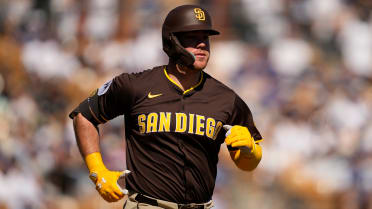
ATLANTA -- Over the past few months we have constructed stories to stir debates about who was the best to play each position in Braves history. But there certainly isn’t any argument over who has been the franchise’s best manager or general manager.
One week after recognizing Hall of Fame manager Bobby Cox’s accomplishments, we will conclude this series by looking back at all John Schuerholz accomplished while establishing himself as the greatest GM in Braves history.
Schuerholz’s accomplishments were immortalized when he was inducted into the National Baseball Hall of Fame in 2017. He became just the sixth inductee whose primary job function was team building (among non-owners).
Along with being the first GM to win a World Series in both the American League and National League, Schuerholz stands as the only architect in American professional sports history to build 14 consecutive division winners.
Before constructing the clubs that netted Atlanta those 14 straight division titles from 1991-2005, five NL pennants and a World Series title in '95, Schuerholz served as the Royals GM from '81-90. He guided Kansas City to its first title in '85 and became a part of that organization before it debuted as an expansion franchise in '69.
When it became clear that Bobby Cox was vacating his GM title in Atlanta to exclusively serve as the Braves' manager at the end of the 1990 season, Schuerholz repeatedly quizzed former Braves president Stan Kasten about his plans. Kasten initially grew excited thinking his top choice would be willing to fill the position.
But Schuerholz initially declined because he didn’t want to leave Kansas City. However, three days later, Schuerholz called back to say, "I made a mistake." Kasten replied, "Yeah, I know that you did," and then he provided the job to a man who would lead the Braves to the first of 14 consecutive division titles in 1991 -- the worst-to-first season that concluded with an extra-inning loss to the Twins in Game 7 of the World Series.
"I could have said, 'He turned us down, he must not really want it,'" Kasten said. "I don't buy that. I thought he was the perfect man for the job. I tell that story to people who are thinking about shutting the door in similar situations."
Schuerholz’s interest in coming to Atlanta was the opportunity to become part of an organization that had a young yet talented big league roster and a potentially fruitful farm system. He wanted to cultivate the landscape created by Cox, who had overhauled the organization’s scouting and development efforts while serving as GM from 1986-90.
It didn’t take Schuerholz long to prove that he was capable of making an immediate impact. His acquisitions of Terry Pendleton, Otis Nixon, Rafael Belliard and Sid Bream were aimed toward improving the defense that would support starting pitchers Tom Glavine, John Smoltz and Steve Avery as they attempted to prove themselves.
With a much-improved defense and a revitalized Pendleton marching his way toward the NL MVP Award, the Braves won the NL West in 1991 and won the first of their five NL pennants in the '90s.
Schuerholz added to his success when he signed Greg Maddux after the 1992 season and traded for Fred McGriff ahead of the Trade Deadline in '93, just before his club surged over the season’s final months to win a third straight division title. Maddux and McGriff both played key roles when the Braves won Atlanta’s first World Series title in '95.
While Schuerholz can also be lauded for bringing Gary Sheffield to Atlanta for two seasons (2002-03), his critics will point out the long-term effects of trading top prospect Adam Wainwright for one year of J.D. Drew in '04. The club also needed some time to recover from the decision to use a group of top prospects for what amounted to one calendar year of Mark Teixeira ('07-08).
But there’s no denying the longstanding success of Schuerholz, who saw the Braves produce a MLB-best .593 winning percentage during his 17-season reign as GM. Yes, those 14 trips to the postseason yielded just one World Series title -- but that’s one more than any other GM has netted since the club relocated to Atlanta in 1966.
Supervising Club Reporter Mark Bowman has covered the Braves for MLB.com since 2001.




